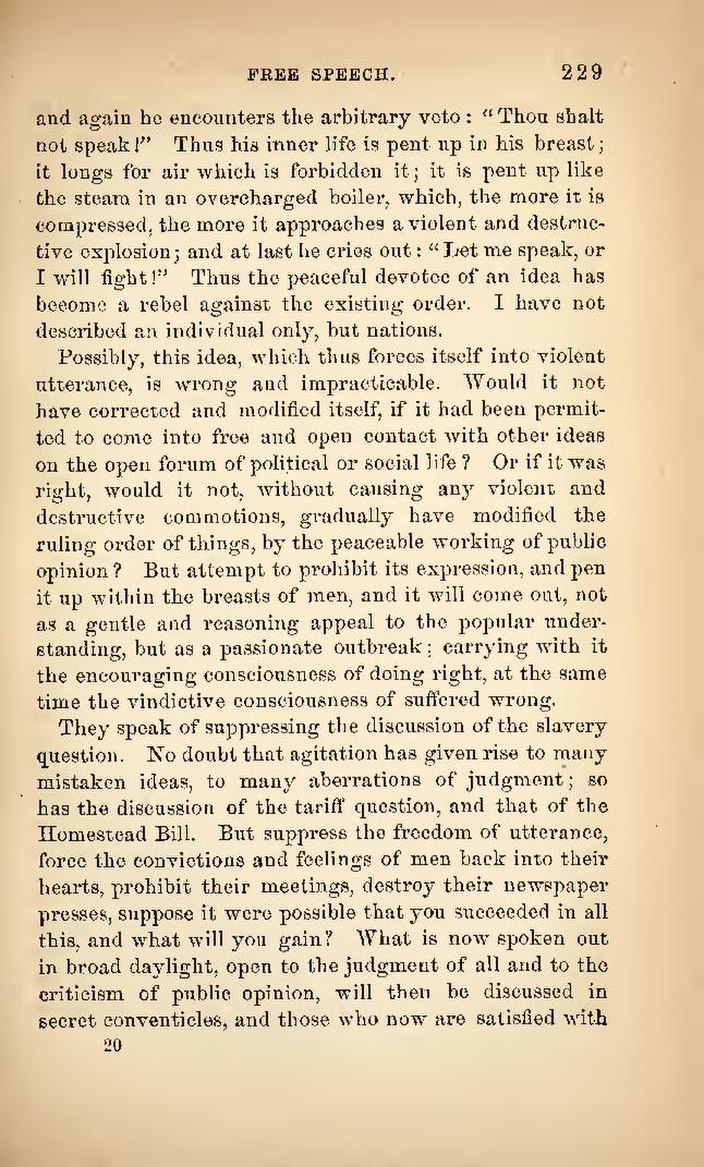and again he encounters the arbitrary veto: “Thou shalt not speak!” Thus his inner life is pent up in his breast; it longs for air which is forbidden it; it is pent up like the steam in an overcharged boiler, which, the more it is compressed, the more it approaches a violent and destructive explosion; and at last he cries out: “Let me speak, or I will fight!” Thus the peaceful devotee of an idea has become a rebel against the existing order. I have not described an individual only, but nations.
Possibly, this idea, which thus forces itself into violent utterance, is wrong and impracticable. Would it not have corrected and modified itself, if it had been permitted to come into free and open contact with other ideas on the open forum of political or social life? Or if it was right, would it not, without causing any violent and destructive commotions, gradually have modified the ruling order of things, by the peaceable working of public opinion? But attempt to prohibit its expression, and pen it up within the breasts of men, and it will come out, not as a gentle and reasoning appeal to the popular understanding, but as a passionate outbreak; carrying with it the encouraging consciousness of doing right, at the same time the vindictive consciousness of suffered wrong.
They speak of suppressing the discussion of the slavery question. No doubt that agitation has given rise to many mistaken ideas, to many aberrations of judgment; so has the discussion of the tariff question, and that of the Homestead Bill. But suppress the freedom of utterance, force the convictions and feelings of men back into their hearts, prohibit their meetings, destroy their newspaper presses, suppose it were possible that you succeeded in all this, and what will you gain? What is now spoken out in broad daylight, open to the judgment of all and to the criticism of public opinion, will then be discussed in secret conventicles, and those who now are satisfied with
